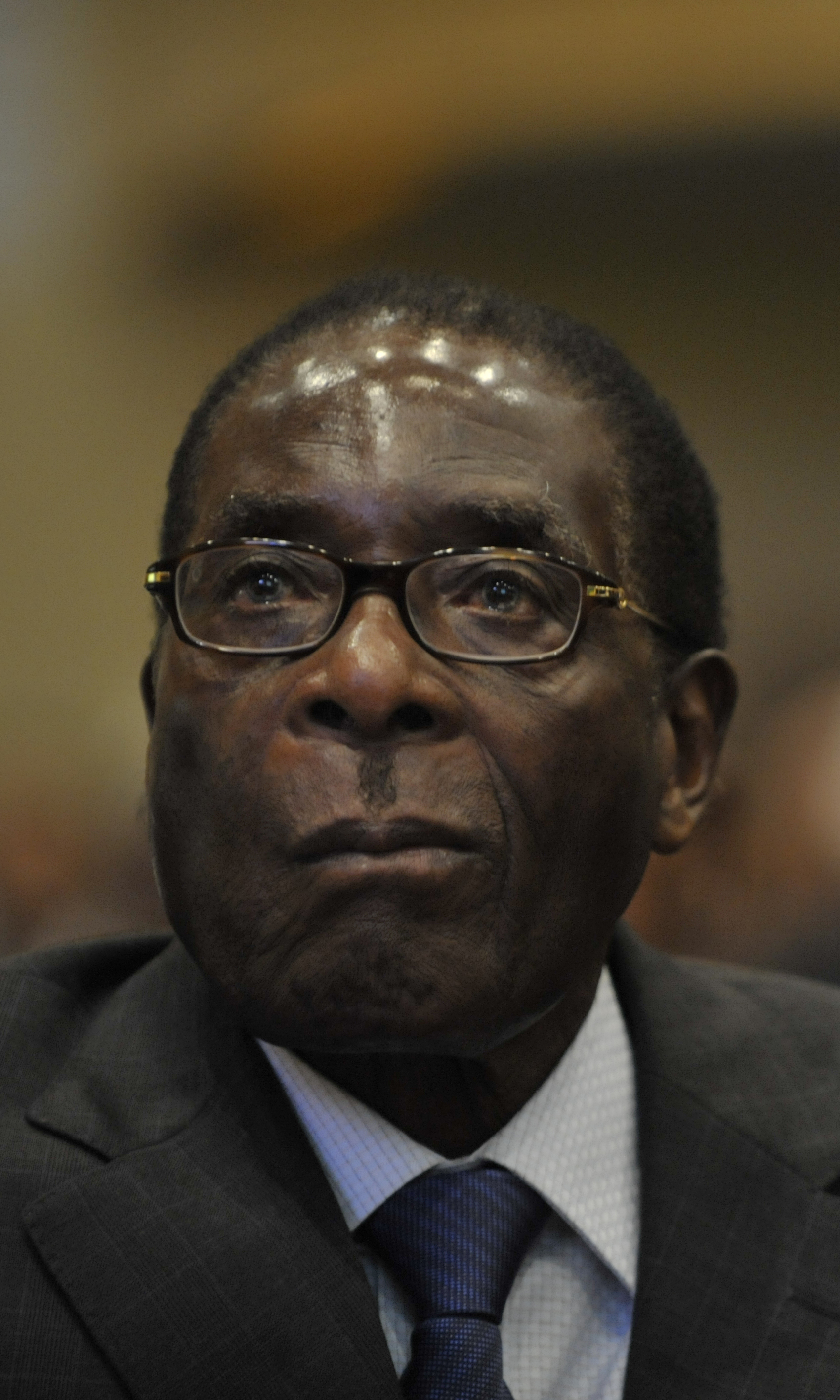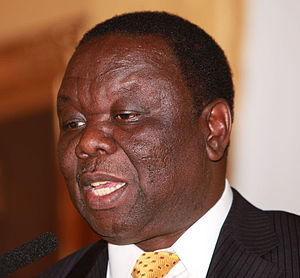Damning LGBT report on Zimbabwe, plus a call for change
Colin Stewart is a 45-year journalism veteran. He is the…
 First of four articles about the treatment of LGBTIs in Zimbabwe.
First of four articles about the treatment of LGBTIs in Zimbabwe.
LGBTI activists in Zimbabwe have compiled a damning report on the country’s repression of gays and lesbians.
In its newly released “Violations Report” for last year, Gays and Lesbians of Zimbabwe, or GALZ, discusses the oppressive environment created by Zimbabwe’s laws, constitutional reform process, homophobia in the media, human rights violations, violence and extortion against LGBTIs, police abuses, and harassment of human rights activists defending LGBTI rights.
“Violent acts and aggravated harassment of individuals suspected of being gay or lesbian are commonplace in Zimbabwe,” the report begins. “Individuals who identify as lesbian, gay, bisexual, transgendered, or intersex (LGBTI) are driven from their homes through violence or threats of violence, forcing many to abandon their possessions and become internally displaced — or even seek refuge abroad — on account of their sexual orientation or gender identity.”
The report calls for action to solve these problems from the president, prime minister, parliament, Ministry of Justice and Legal Affairs, and the co-chairs of the Constitution Select Committee. (See details below.)
Public officials responded quickly and negatively. Immediately after the report was unveiled, police raided the GALZ office and detained 44 members overnight at the police station before releasing them without charges.

GALZ says harassment and discrimination against LGBTIs are fueled by Zimbabwean laws as well as by anti-LGBTI prejudice among public officials, media, religious leaders and the general public.
“Zimbabwe’s Criminal Law, which explicitly criminalises consensual anal sex between men and which contains ambiguous and over-broad provisions on sexual assault, is used to justify abuse against LGBTI individuals,” the report says. “Extortionists also use the existence of these provisions to demand money or goods in exchange of not releasing real or imagined details of an individual’s private life to the public. In a context of entrenched stigmatization of LGBTI individuals, many feel compelled to hand over their possessions rather than risk the often violent wrath of families, friends, and neighbour.”
“Victims of abuse and harassment are often too scared to seek protection from the police. In many cases, police officers are themselves instigators of abuse, or contribute to it, either by carrying out extortion schemes, or by subjecting individuals suspected of being gay or lesbian to cruel, inhuman, and degrading treatment, including sexual assault, forced strip-searches, non-consensual medical treatment, and death-threats. …”
“Political leaders not only condone these human rights abuses, but many celebrate them as part of Zimbabwean ‘culture.’ High-level leaders, including President Robert Mugabe, repeatedly refuse to endorse the repeal of discriminatory legislation and, moreover, fuel public prejudice against LGBTI individuals through public statements that endorse abuse. In doing so, they ignore Zimbabwe’s voluntarily undertaken international human rights obligations to protect the rights of everyone under Zimbabwe’s jurisdiction without discrimination.”
Mugabe and the leaders drafting a new constitution so far have refused to remedy the situation by incorporating protections for LGBTI people in the new document.
GALZ urged the country’s leaders to take action to correct the situation by:
- including LGBTI representatives in the constitutional process;
- explicitly prohibiting discrimination on the basis of sexual orientation and gender identity in the new constitution;
- repealing all laws criminalizing or punishing consensual adult sex, including between members of the same sex, which would involve repealing the current law that punishes gay sexual activity with up to one year in prison;
- investigating and punishing abuse and violence directed at individuals because of their real or perceived sexual orientation or gender identity;
- ensuring that the criminal justice system is not used to target or harass LGBTI organizations, their staff, and the lawyers who represent and support them; and
- allowing these organizations, their staff, and lawyers to carry out their work in defense of human rights without fear of reprisal or intimidation.
But the country hasn’t been heading in that direction.

Starting last year, the report says, officials increased the intensity of public statements attacking LGBT rights as the constitutional review process got under way.
Those attacks include Mugabe’s speech in November 2011, when he said that homosexuals are “worse than pigs and dogs” and will be “severely punished” if they practice homosexuality in Zimbabwe. He also called Prime Minister David Cameron of the United Kingdom “satanic” for suggesting that the U.K. would cut foreign aid to countries that discriminate against LGBTIs. In February 2012, he called same-sex marriage “insanity.”
Also in February 2012, the co-chairs of the Constitution Select Committee not only rejected the idea of including LGBT anti-discrimination clauses in the new constitution, but also said the document would include new criminal prohibitions on same-sex behavior.
Prime Minister Morgan

has been on both sides of the issue. In October 2011, he reversed his earlier anti-gay position and declared his support for gay rights, but his party has not included a clear position on the issue of homosexuality in its platform, GALZ said.
Religious leaders also contribute to the problem, GALZ said. “In an internal disagreement between Harare bishops, the main issue became whether or not a church officials had ‘taken a stance’ on homosexuality, and whether this stance was extreme enough
(that is, advocating the murder of LGBTI individuals),” the report said. It added:
“The media in Zimbabwe contributes to and exacerbates public prejudices against LGBTI individuals by, for the most part, portraying homosexuality as linked to violence and crime.”
The report’s specific recommendations for action by Zimbabwe’s public officials are listed below.
Related articles
- Zanu (PF) rejects parts of draft constitution – Business Day (businessday.co.za)
- Zimbabwe police raid office, arrest 44 gay activists
- ‘U.S. Christian Right is Transforming Sexual Politics in Africa’
- UN high commissioner tells Zimbabwe it needs to change
- U.S. cites 3 tough countries for south African LGBTs
- Zimbabwe official: We won’t allow gay rights
- Zimbabwe official’s plan: Expel gays, seize their land
- Anti-gay Zimbabwe politicians blast ‘Satanic’ Obama
- No LGBT rights in proposed Zimbabwe constitution
Detailed recommendations of the “Violations Report”:
![]()
To the President and the Prime Minister of Zimbabwe
In order to discharge Zimbabwe’s international human rights obligations to protect the human rights of everyone under Zimbabwe’s jurisdiction, the President and the Prime Minister should without delay:
- Immediately cease making statements that in any way vilify, dehumanise, abuse, or slander LGBTI individuals.
- Publicly denounce violence directed at LGBTI individuals.
- Announce the investigation of all allegations of police abuse and extortion of LGBTI individuals, as well as the suspension of public service of those found guilty of abuse or extortion.
- Publicly announce support for the inclusion of explicit protections of the right to non-discrimination on grounds of sexual orientation and gender identity in the new constitution.
- Publicly support the work of all human rights defenders, including those working in defence of the right to non-discrimination on the basis of sexual orientation and gender identity.
To Zimbabwe’s Ministry of Justice and Legal Affairs
The Ministry of Justice and Legal Affairs must without delay:
- Investigate all allegations of public official abuse against LGBTI individuals, with a view to suspending police officers and other public officials found guilty of abuse or extortion.
- Apply appropriate sentences for gross human rights violations such as torture or cruel, inhuman, or degrading treatment or punishment, including the physical and sexual abuse of LGBTI individuals in police custody.
To Zimbabwe’s Parliament
Zimbabwe’s current legal framework is prima facie inconsistent with the country’s international human rights obligations. Furthermore, several Criminal Law provisions are used to justify abuse against LGBTI individuals by being overbroad and ambiguous, in contravention of provisions that require laws to be predictable, proportionate to their aim, and for the government to monitor the effect of its laws and policies.
Zimbabwe’s government should immediately move to:
- Repeal article 73 of the Criminal Law
- Amend articles 66, 67, and 69 of the Criminal Law to ensure the right of everyone to be presumed innocent until proven guilty, and to remove any gender bias in the applicability of the law, and to remove any criminalisation of consensual adult sex.
To the Co-Chairs of the Constitution Select Committee
In order to ensure the protection of the rights to non-discrimination and participation as regards to the constitutional drafting process, the Co-Chairs of the Constitution Select Committee should immediately:
- Publicly reverse their statements regarding the exclusion of nondiscrimination protections on grounds of sexual orientation and gender identity from the new constitution.
- Include provisions in the draft constitution that discharge Zimbabwe’s international obligations to guarantee the right to nondiscrimination on all grounds, including explicit protections of the right to non-discrimination on the basis of sexual orientation and gender identity.

